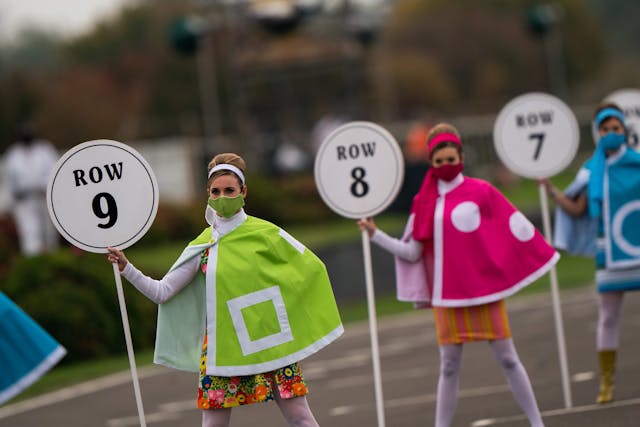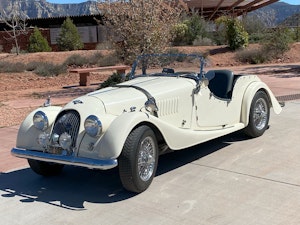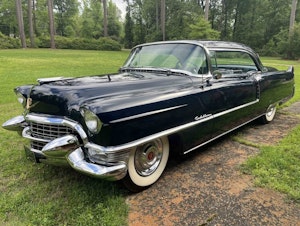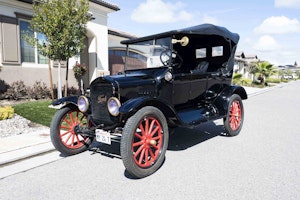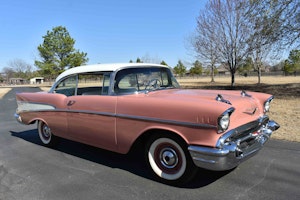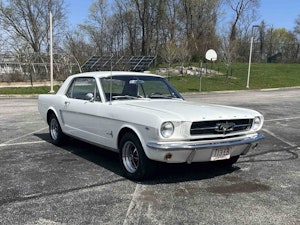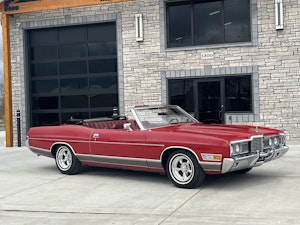Media | Articles
A year of big change (and big sales) in the U.K.
It will be no surprise to regular readers that Hagerty Insider loves data. We have analysts whose sole job is to track myriad strings of figures—auction results, dealer sales, advertised prices, and insurance quotes—to suss out what’s really happening in the collector car market.
But data can only tell you so much. Take 2020’s U.K. auction results, for example; many years from now, a glance at this year’s page in an almanack of classic car data wouldn’t immediately highlight anything particularly significant. Until 1st December 2020, Hagerty tracked 53 U.K. sales from 14 auction houses selling a combined value of £144.6M ($193.6M), just £20,000 less than at the same point last year. The mean sell-through rate for 2020 was 70 percent, a little higher than the 64 percent figure recorded in 2019.
These figures don’t tell even half the story. They don’t record the devastation of the dealer and auction scene back in March, when the first U.K. lockdown was imposed and those sales that couldn’t be postponed in time were hit hard, recording sell-through rates as low as 19 percent. They don’t illustrate the surge in the market over the summer, when relative freedom was restored and enthusiasts, suddenly more aware of their own mortality, decided it was time to buy that classic they’d always lusted after. They don’t show the impact on clubs and on their members, and most of all, they don’t show the dominance of internet sales.
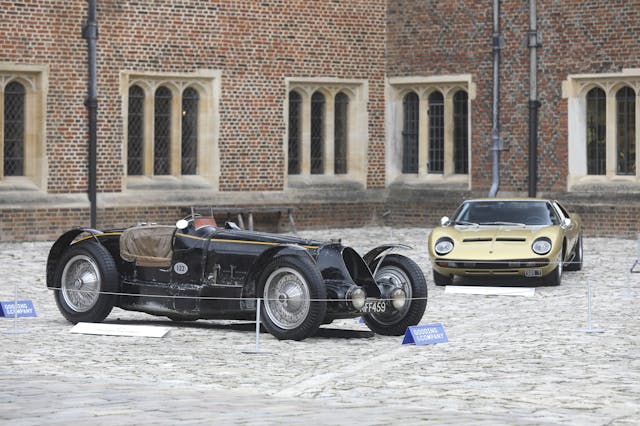
This was the year that everything went online, and those events companies, dealers, auction houses, and parts businesses who thought they could just hunker down and weather the storm, emerging back to where we’d been last year once the COVID clouds had cleared, were in for a nasty shock.
The change, when it came, was swift: As I reported in April, Auto Trader, the U.K.’s largest digital automotive sales site, reported that its internet searches were down 30 percent year-on-year. Three months later, in July, things were very different: “Despite the challenging backdrop, there’s been a surge in interest this year in people looking at and buying cars,” said Ian Plummer, Auto Trader’s director. “Listings for classic (pre-1990) vehicles in July 2020 were more than double the level of the previous summer, and by November, online classic searches were up 41 percent from the same month in 2019.”
John Graeme, finance director of specialist sports car dealer Redline, told me a similar story. “As the U.K. emerged from lockdown, business just took off. In June, we recorded our best ever month for sales, all without a single test drive.” Auctions had a similar experience. In March 2020, the U.K. average sell-through rate was 51 percent. By June it was 87 percent. One company, South Western Vehicle Auctions, recorded an unprecedented 99 percent of sell-through—just one car away from a perfect result.
As the U.K. emerged from lockdown, business just took off. In June, we recorded our best ever month for sales, all without a single test drive.”
John Graeme, finance director, Redline
That’s not to say the online sales venues simply sat back and watched the money flow in. They, too, had to adjust to changing expectations. For instance, as the initial lockdown eased, some buyers wanted a COVID-friendly way to inspect their potential purchases in person. “At the price point we aim for—£60,000 plus—this is a really important purchase for our customers,” said Graeme. “Once they were able to, potential buyers wanted to touch and feel the cars again. We decided that we needed a new system, one that allowed cars to be reserved with a deposit payment online, giving customers the reassurance that the car would still be there when it was safe to view it in person.”
Auction companies have likewise experimented with a mix of in-person and online bidding. That hybrid can be challenging to pull off for the auctioneer, given technical lags. “It’s akin to being a conductor with an unpredictable orchestra,” says veteran auctioneer Fabian Hine. But Mark Perkins, founder and managing director of Historics Auctioneers, thinks it has benefited the experience both for those in the room and behind computer screens. “It adds to the theater. We have seen online bidding energize those who have attended in person, encouraging them to wage battle with the equally worthy, faceless internet challengers.”
Of course, auctions are not the only way enthusiasts interact with cars and each other. Around a quarter million people in the U.K. belong to organizations affiliated with the Federation of British Historic Vehicle Clubs, whose main offerings are car gatherings. Although socially distanced track days and small events in rural areas have been possible at times this year, computers have loomed larger here, as well.
”We’ve had to adapt quickly,” says Jeff Heywood, vice president of the BMW Car Club GB.
“We’ve always had a great website, thriving social media presence, and online access to our club magazine, Straight Six, but this year we’ve had to go further…most of our regional sections have held virtual ‘meets’ via Microsoft Teams and the like. We’ve also introduced a weekly club podcast that carries interviews with prominent people from the world of BMW and beyond as well as well-known club personalities, which have proven very popular with our members.”
At the start of 2020, Hagerty had a list of 44 events in the U.K. that we intended to track or participate in; all but seven ended up being cancelled. Those that went ahead did so with dramatic alterations. Goodwood, for instance, pressed ahead with SpeedWeek in October, but limited in-person attendance to participants, streaming the action to online viewers in 150 countries.
“We’ve learned a huge amount that we’ll definitely take forwards into 2021 that will make our signature events even more special, particularly to those who can’t attend in person,” said Isabel Metcalfe, a Goodwood media representative.
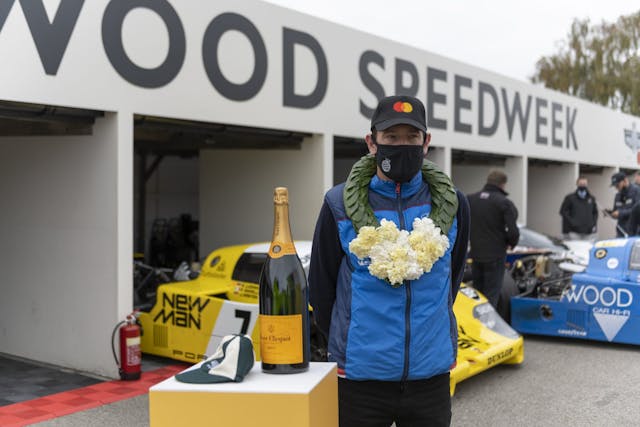
British pensioners have recently made the news for receiving the first approved doses of COVID-vaccines, and everyone—classic car enthusiasts included—is hoping for a better 2021. Hagerty has a tracking list of 110 U.K. and European auctions already scheduled for next year, and there’s an ever-increasing calendar of events. So, life will go on.
That said, none of the people I spoke to suggested the collector car market will go back exactly to the way things were before. Even the most change-resistant businesses have realized that a post-pandemic world will operate differently.
What COVID-19 has done is to drag the old-fashioned U.K. classic car world firmly into the 21st century. This could be a turning point for an industry that the FBHVC recently reported is now worth £7.2 billion ($9.6 billion) annually to the U.K. economy and employs over 34,000 people. With mounting pressure from the environmental lobby on fossil fuels, challenges from new technology such as autonomous cars, and growing concerns with road safety, there’s never been a more important time for those who love historic motoring to work together, using all the benefits of the technology at their disposal. Despite all the agony that this dreadful virus has brought with it, maybe for motoring enthusiasts, there is a small silver lining after all.
__
John Mayhead is editor of the U.K. Hagerty Price Guide.
***
Marketplace
Buy and sell classics with confidence
Check out the Hagerty Media homepage so you don’t miss a single story, or better yet, bookmark it. To get our best stories delivered right to your inbox, subscribe to our newsletters.
